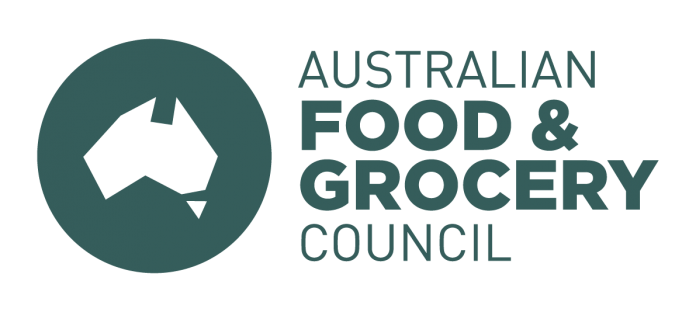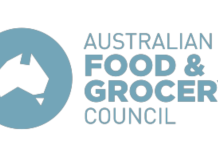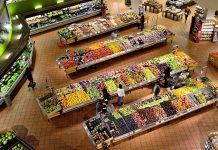
Media Release by AFGC
The Australian Food and Grocery Council (AFGC), the peak body for the nation’s food and grocery manufacturing industry, welcomes the federal government’s $60 million funding boost for advanced recycling of soft plastics as an important step in creating a true circular economy for plastic packaging in Australia.
The AFGC and major food and grocery manufacturers including Arnott’s, Nestlé, Mondelez, Unilever, Mars Wrigley and Kellogg have welcomed Prime Minister Scott Morrison’s announcement of a new $60 million stream under the Recycling Modernisation Fund targeted at advanced soft plastics recycling technologies.
AFGC CEO Tanya Barden said the funding will allow the development of onshore recycling capabilities for hard-to-recycle soft plastic packaging, such as bread bags and cereal box liners, and allow Australian manufacturers to source more food-grade recycled content for packaging here in Australia.
“Australia’s food and grocery manufacturing industry is committed to creating an effective and sustainable circular economy for plastic packaging in Australia,” Ms Barden said.
“The AFGC is currently developing the National Plastics Recycling Scheme (NPRS), which will be Australia’s largest industry-led plastics recycling scheme. This new investment to support advanced recycling provides a key link for creating a successful product stewardship scheme for soft plastic packaging.
“Plastic packaging has an important role in keeping food safe and fresh, reducing food waste and keeping products intact. Our industry understands we must maximise recycling to reduce use of virgin plastics, build Australia’s advanced recycling capabilities and avoid harmful effects on the environment.”
Darren O’Brien, President Mondelez Australia, NZ & Japan said: “We know Australians want us to do everything we can to make our packaging more sustainable, and that’s why we’ve invested in a world first for Cadbury with our transition to 30% recycled soft plastic packaging later this year.
“We had to search the world for this recycled packaging because until now, there just hasn’t been the domestic advanced recycling capability we need in Australia to make soft plastics a truly circular material.
“The investment by the government in new technology that ensures we can transform local waste back into packaging is a game changer for consumers, industry and the planet.”
Nestlé Oceania CEO Sandra Martinez said: “I’m convinced we can work together to create a better future for soft plastics in Australia. That’s why Nestlé has collaborated to create firstly, a kerbside trial to boost collection of soft plastics, and secondly, a KitKat prototype wrapper that demonstrated the circularity that’s possible with the right collection and processing. This funding will help the entire value chain to bring this better future to life, turn waste plastic into a resource, and provide opportunities for food companies to buy locally created soft plastic packaging with recycled content.”
Unilever Head of Sustainable Business and Communications ANZ Brooke Sprott said: “Building stronger capacity for advanced recycling is key to accelerating Australia’s transition to a circular economy.
“At Unilever we’re working hard to reduce our use of virgin plastic, increase our use of post-consumer plastic, and ramp up recyclability of our packaging to meet the 2025 National Packaging Targets. Each year, we use 1,200 tonnes of recycled plastic in our home, beauty and personal care bottles such as Dove, OMO and TRESemmé. But we’re looking for solutions to incorporate recycled plastic into our food and refreshment packaging. “There’s currently a gap in the availability of traceable, food-grade recycled plastic in Australia. Today’s announcement will help close this gap by increasing capacity for hard-to-recycle materials like soft plastics to be collected and processed into a traceable stream of food-grade recycled plastic.”
Arnott’s Group Chief Transformation Officer, Simon Lowden said: “The pursuit of a circular economy for packaging requires that the industry as a whole be ready and willing to act. It requires undertakings from the consumer and the corporation, as well as the development of critical infrastructure, particularly at a domestic level, to drive better solutions and outcomes.
“The Arnott’s Group are committed to meeting the 2025 APCO targets and have pledged to achieve 50% average post-consumer recycled materials across our packaging by this date. We see this as just the starting point on a much greater journey.”
Mars Australia spokesperson Bill Heague said: “Mars’ packaging for its confectionery, food and pet food products is either recycle-ready today or is being designed to be recyclable or reusable by 2025. We believe brand owners have an essential role in a circular economy alongside the support needed from government to ensure Australia’s plastics recycling infrastructure is ready to meet industry and shopper expectations.”
Kellogg ANZ Managing Director Anthony Holme said: “Kellogg’s is committed to nurturing the environment by driving sustainable packaging innovation and delivering products to our consumers that have minimal waste and can be recycled over and over. All of our cereals produced at our Botany plant in Sydney use materials sourced from local manufacturers, and we are currently undertaking trials using mechanically recycled materials. We support the announcement of funding towards hard-to-recycle plastics, which would enable further packaging innovation including locally sourced advanced recycled resin to add into our soft plastics.”
Momentum is building in Australia’s advanced plastics recycling with food and grocery manufacturers such as Kellogg’s, Unilever, Mars, Nestlé and Mondelez trialling recycled content in plastic packaging and the announcement of new soft plastic advanced recycling facilities in NSW and Victoria. Projects announced include:
- plastics manufacturer Qenos and waste management giant Cleanaway conducting a joint feasibility study of establishing advanced plastics recycling facilities in Victoria and NSW, and
- global plastics recycling company Brightmark has committed to establishing a $260 million advanced plastics recycling facility in Parkes, NSW
At the same time the AFGC, through the NPRS, is working with industry and government to facilitate soft plastic packaging kerbside collection to increase community convenience and landfill diversion. Already there has been a successful trial of kerbside soft plastics collection on the NSW Central Coast and a new trial just announced in Newcastle.

















